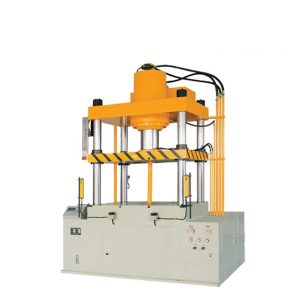Hydraulic press has become essential in various industrial sectors due to their ability to deliver high force with precision and control. These machines use hydraulic fluid to generate compressive force, making them ideal for tasks that require significant pressure, such as metal forming, molding, and material testing. Hydraulic presses stand out for their versatility, allowing industries to adapt them for a wide range of applications, from automotive manufacturing to aerospace component production.

Versatility Across Key Industries
In the automotive industry, manufacturers rely on hydraulic presses to stamp body panels, forge engine parts, and assemble precision components. By applying uniform pressure, hydraulic presses ensure consistent product quality, reduce material waste, and increase overall efficiency.
In the aerospace sector, hydraulic presses shape high-strength alloys and composite materials. The controlled force application allows manufacturers to produce lightweight, durable components crucial for both aircraft and spacecraft. Additionally, in the consumer goods sector, hydraulic presses form plastic and metal parts with high precision for appliances and electronics. In the recycling industry, hydraulic balers compress scrap metal, paper, and plastic into compact blocks, optimizing storage space and supporting sustainable waste management practices.
Tech Advancements in Hydraulic Press
Technology continues to improve hydraulic presses. Modern systems now incorporate programmable logic controllers (PLCs) and sensors for automated operations, enhancing precision and reducing human error. Some high-end models feature energy-efficient designs, such as variable-speed pumps, which lower power consumption while maintaining peak performance. Additionally, the integration of Internet of Things (IoT) technology lets manufacturers monitor machines in real-time and perform predictive maintenance, minimizing downtime and extending the equipment’s lifespan.
Looking ahead, industries will demand even higher efficiency and sustainability, ensuring that hydraulic presses remain critical to manufacturing processes. Innovations will continue to enhance their functionality and environmental compatibility, positioning hydraulic presses as a driving force in industrial automation. Whether in heavy industry or precision engineering, hydraulic presses demonstrate reliability and adaptability, securing their place in the future of manufacturing.



